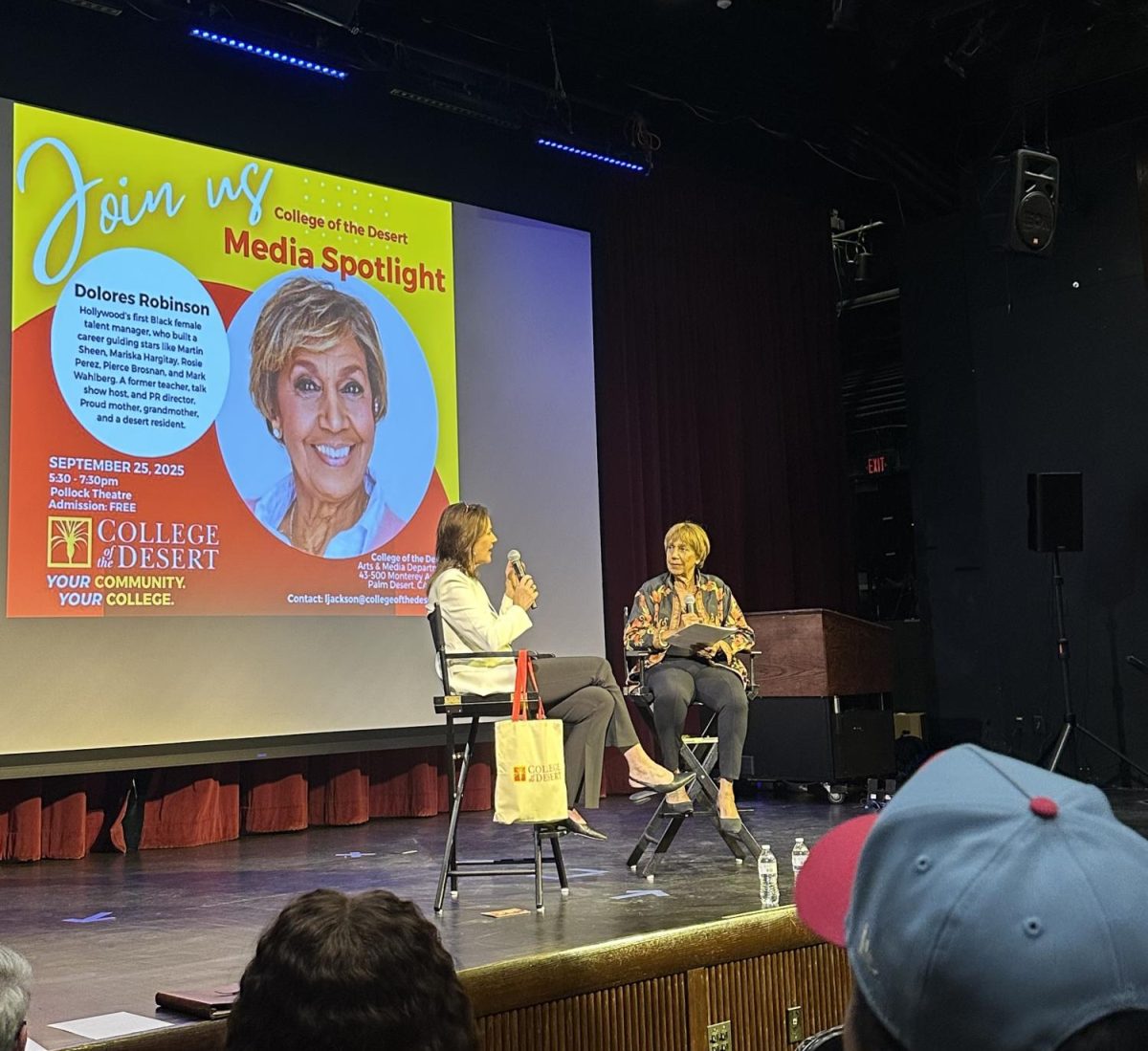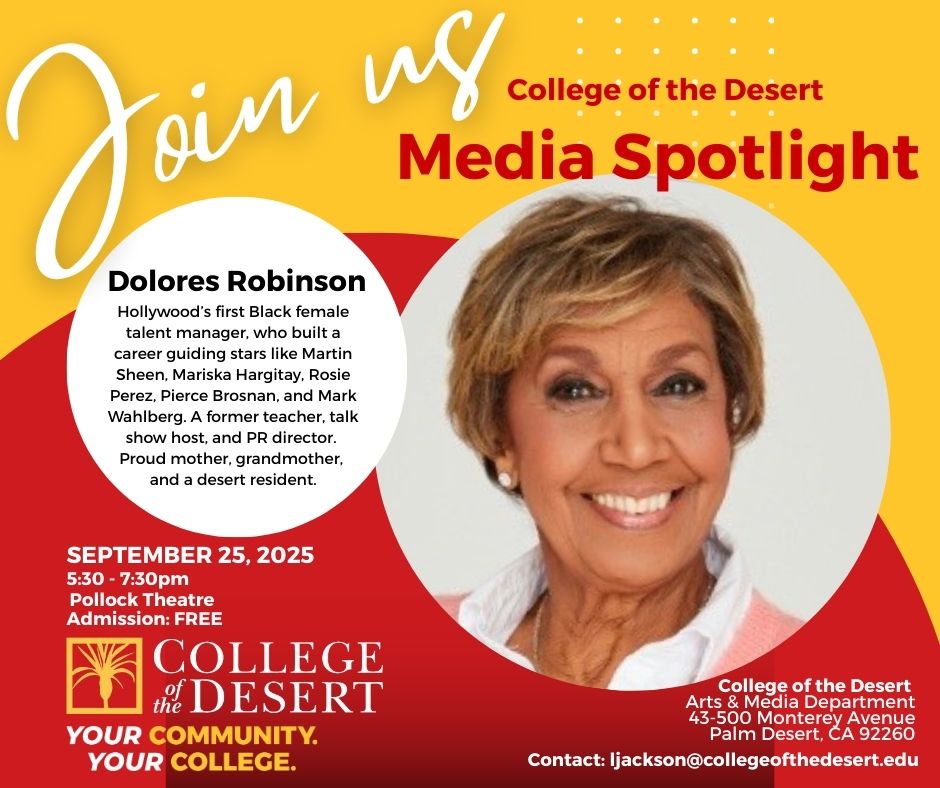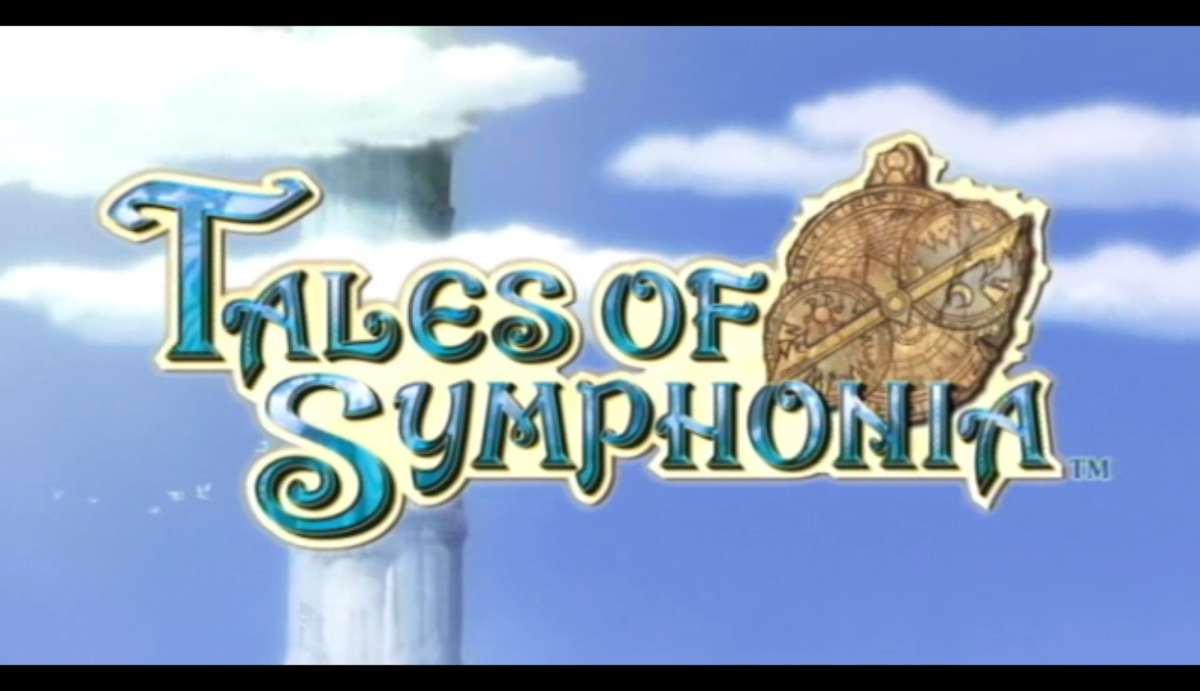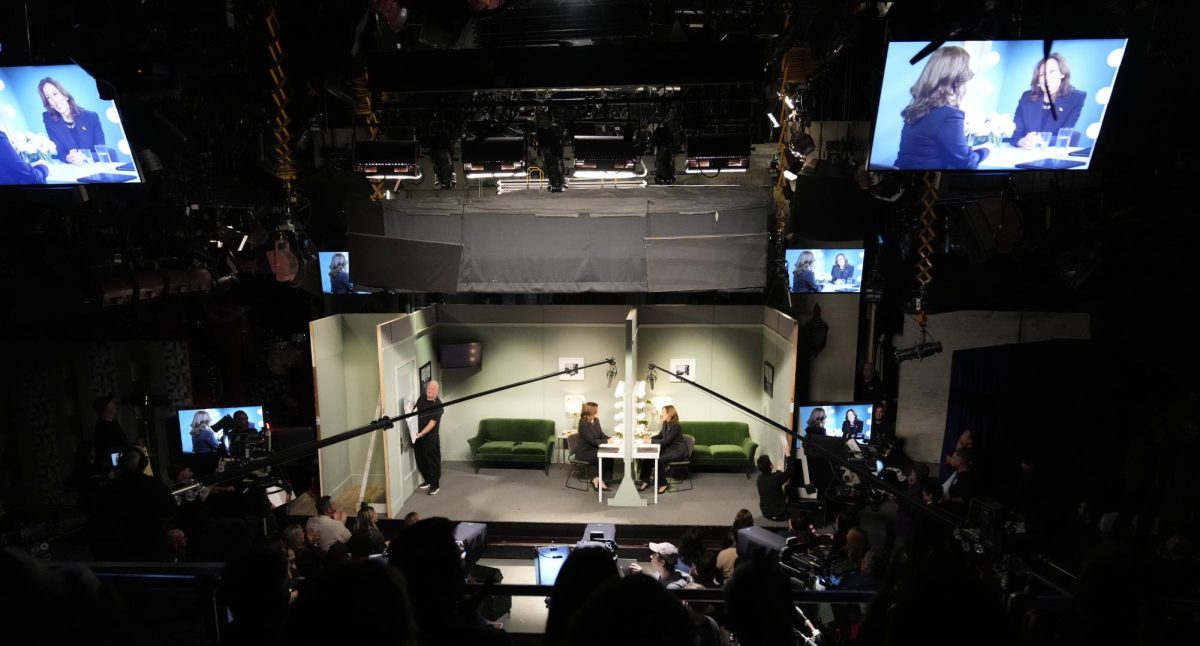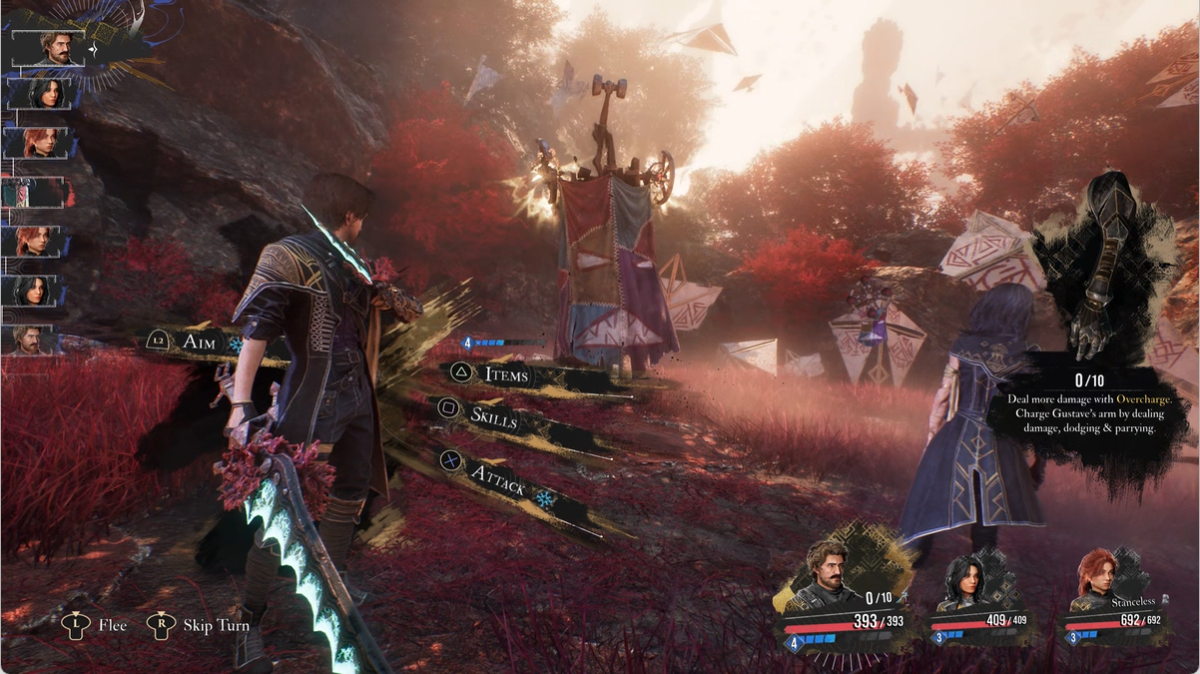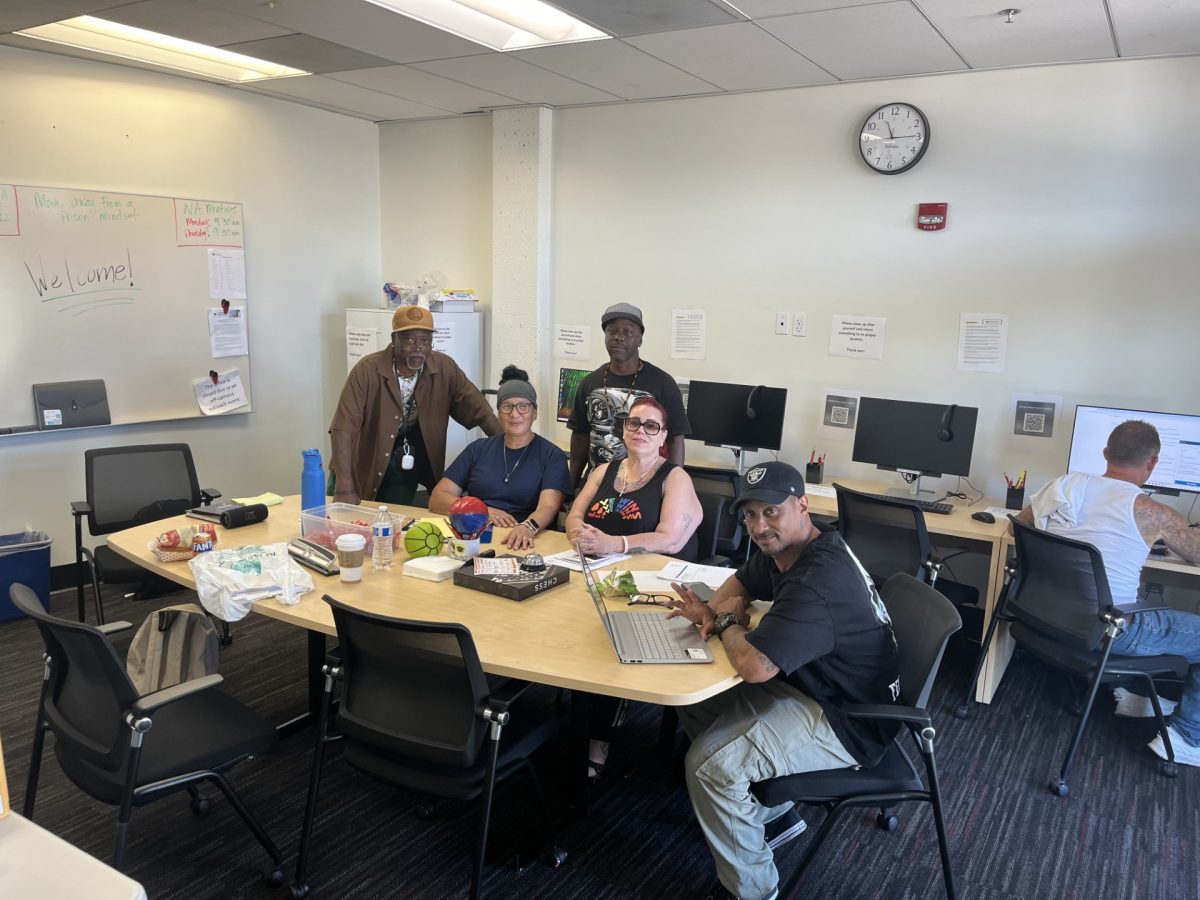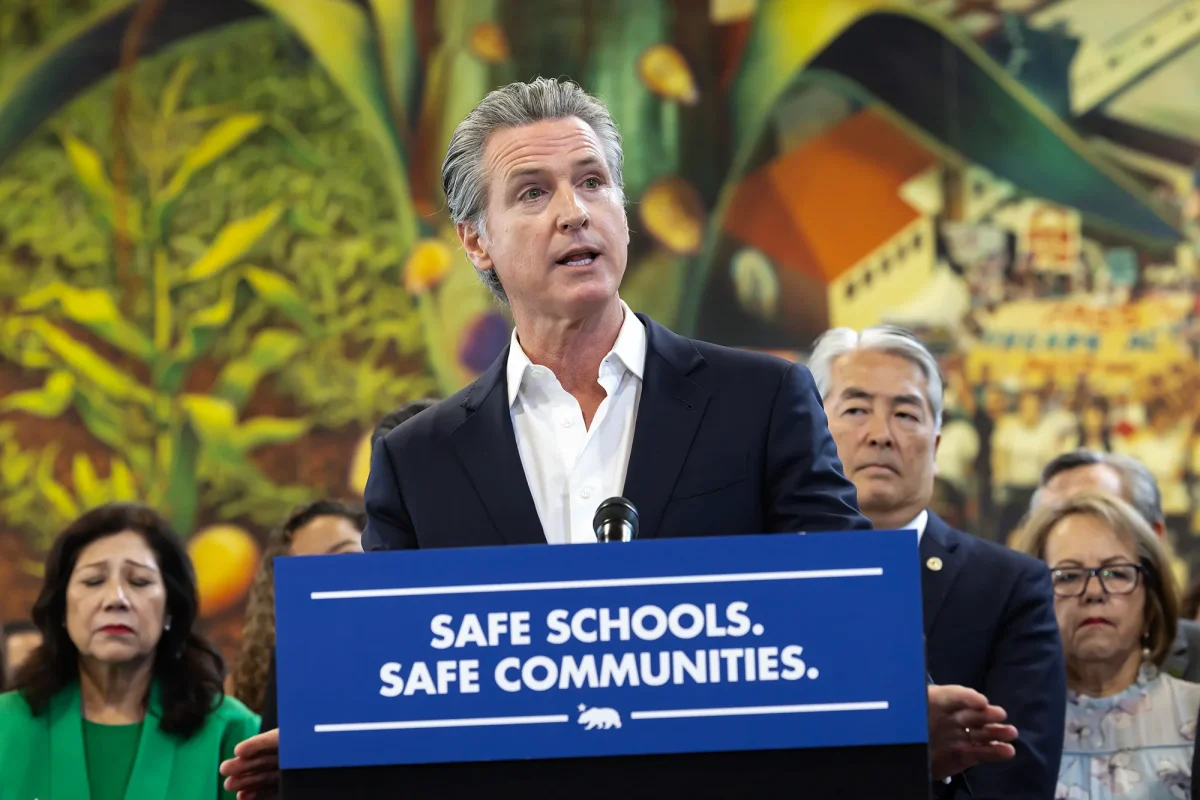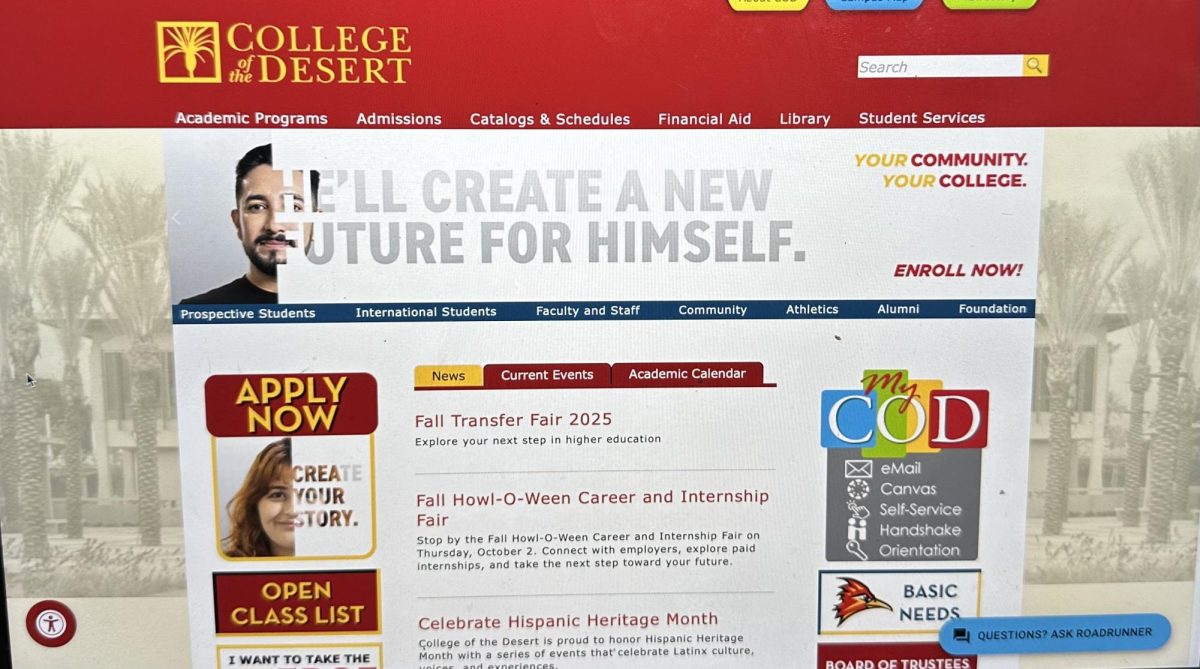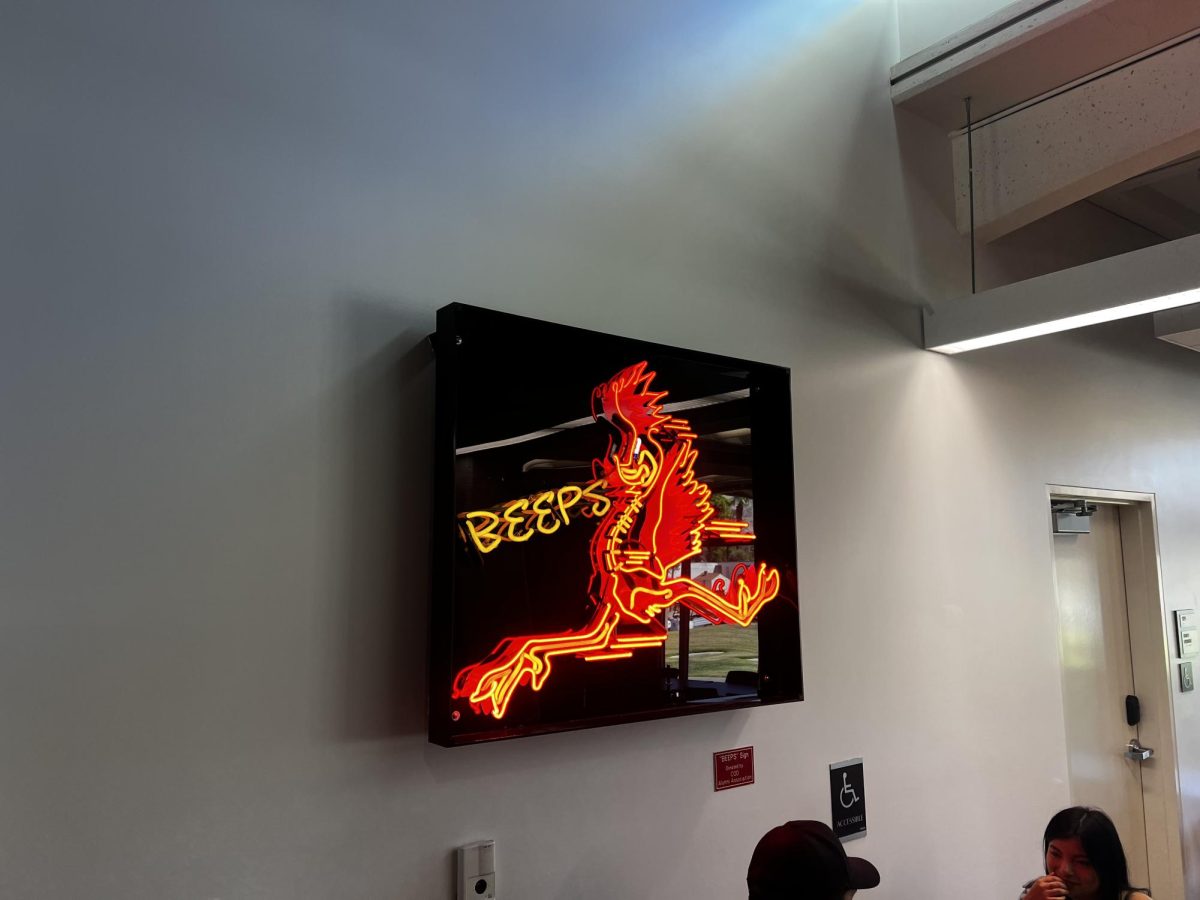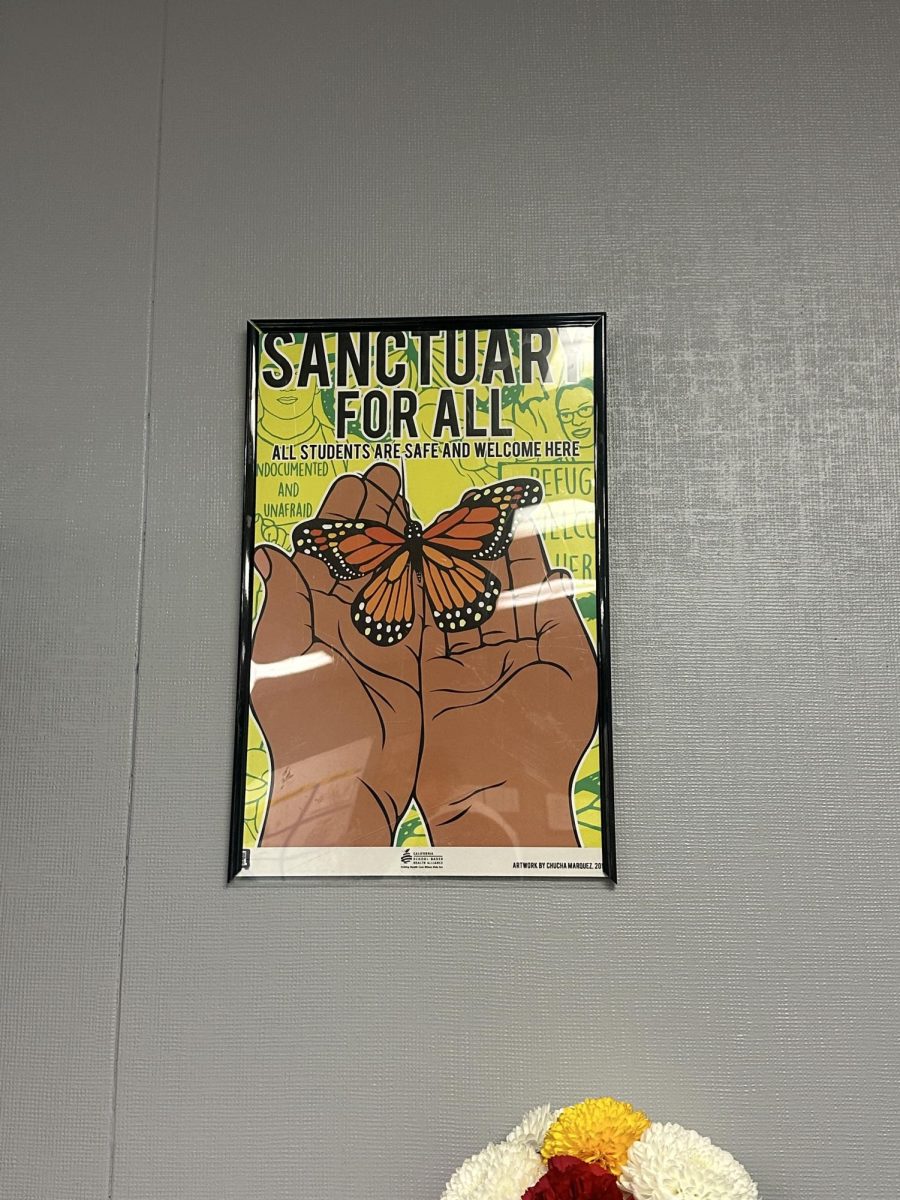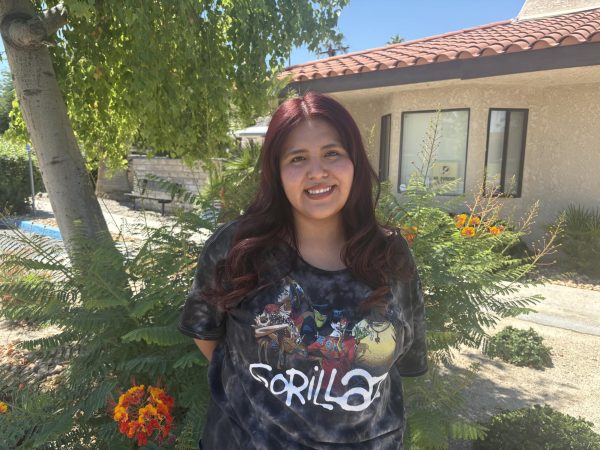College of the Desert recently launched a new program, Media Spotlight, which hosts monthly events to introduce students to leading figures in the entertainment industry. On Sept. 25, the first guest was Dolores Robinson, who spoke at the Pollock Theatre on COD’s Palm Desert campus. The evening was filled with energy—questions spilling through the air, lights flickering, and laughter echoing throughout the theater.
Born April 13, 1936, in Penllyn, Pennsylvania, Robinson described her family as “dirt poor.” Her mother dreamed that Robinson might graduate from high school and find stable work as a secretary at an asbestos plant. Robinson later married actor Matt Robinson, best known as the first Gordon on PBS’s Sesame Street. After the couple separated, Robinson—who despised pity—found the motivation to move to California with her two children. In 1974, she relocated with no intention of entering the entertainment industry; her priority was simply survival.
“When you’re that little girl, you just dream of survival,” she said, reflecting on her childhood and early struggles.
Robinson began her career as a secretary at a talent agency and later became the first Black female talent manager. Inspired by a chance meeting with a man in an elevator, she founded Dolores Robinson Entertainment, signing LeVar Burton as her first client.
During her teens, Dolores Robinson was inspired by Ebony magazine’s celebration of successful Black individuals. At just 14, she met Diahann Carroll at a New York nightclub a connection that blossomed into a lifelong friendship after they reunited in California. Years later, Robinson spotted Carroll featured in Ebony.
Though Robinson never aspired to act, she accepted small film roles primarily to qualify her children for SAG insurance. She later participated in a family reality series produced by Oprah Winfrey, which showcased her daughter a well-known actress and their family. The show eventually moved to the Hallmark Channel, even after Robinson relocated to Palm Springs.
During the panel discussion, Robinson addressed the difficulties she faced as a Black woman in the entertainment industry. She emphasized that being “different in America,” whether by race, age or ability, comes with challenges, but she learned to “flip” adversity and turn it to her advantage. She raised her children alone, putting them through college without loans, something she is deeply proud of.
“Just being different in America, whether you’re old, young, white, brown, yellow, Black or handicapped, is difficult,” Robinson said. “Anything that’s in your way, knock it down and make it work for you.”
Robinson also noted her continued political involvement, saying she still attends marches and advocates for social justice.
Her main message to students was to recognize opportunity in every circumstance, good or bad, and find a way to make it work to their benefit, just as she did throughout her career. Robinson’s journey from poverty to prominence in Hollywood reminds students that success begins with resilience and the courage to turn obstacles into opportunities.

